 "Mindful attention causes beneficial thoughts that have not arisen, to arise. It will also cause harmful thoughts that have already arisen to vanish. In the one who is mindful, the good that is to be will be realized" -Buddha , Anguttara Nikaya
"Mindful attention causes beneficial thoughts that have not arisen, to arise. It will also cause harmful thoughts that have already arisen to vanish. In the one who is mindful, the good that is to be will be realized" -Buddha , Anguttara NikayaMindfulness with skillful effort will lead to clear comprehension. This may ultimately lead to wisdom. This is like an initial formula, when you first practice mindfulness. In Pali language this is called "Athapi, sampajano -satima". If you loose mindfulness (happens to me a lot!), whatever the wisdom you have already gained may come to your rescue. With wisdom you have clear comprehension and this will enable you to make more skillful efforts to be mindful again. As time goes by and your mindfulness practice gets stronger this formula will work more towards leading to wisdom. This is my own hypothesis according to the Buddhist scripts and my own experience. You will have to test it for yourself.
The transformation of mind through different stages leading to enlightenment is described by Buddha as the seven factors of enlightenment in Sathipattana Sutta.
The Factors of Enlightenment
1. Mindfulness
2. Investigation of Mental Objects
3. Energy
4. Joy
5. Calm
6. Concentration
7. Equanimity
If you want to read more about how this works go to the following link:
Please also see other related posts:
Practice-of-mindfulness-four-bases-of mindfulness
Related sutta:
Mindfulness and Clear Comprehension
13. Then the Blessed One addressed the bhikkhus, saying: "Mindful should you dwell, bhikkhus, clearly comprehending; thus I exhort you.
14. "And how, bhikkhus, is a bhikkhu mindful? When he dwells contemplating the body in the body, earnestly, clearly comprehending, and mindfully, after having overcome desire and sorrow in regard to the world; and when he dwells contemplating feelings in feelings, the mind in the mind, and mental objects in mental objects, earnestly, clearly comprehending, and mindfully, after having overcome desire and sorrow in regard to the world, then is he said to be mindful.
15. "And how, bhikkhus, does a bhikkhu have clear comprehension? When he remains fully aware of his coming and going, his looking forward and his looking away, his bending and stretching, his wearing of his robe and carrying of his bowl, his eating and drinking, masticating and savoring, his defecating and urinating, his walking, standing, sitting, lying down, going to sleep or keeping awake, his speaking or being silent, then is he said to have clear comprehension.
"Mindful should you dwell, bhikkhus, clearly comprehending; thus I exhort you."
http://www.accesstoinsight.org/tipitaka/dn/dn.16.1-6.vaji.html
(Maha-parinibbana Sutta-Last Days of the Buddha)










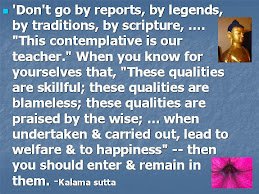


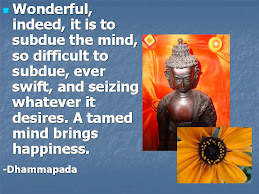
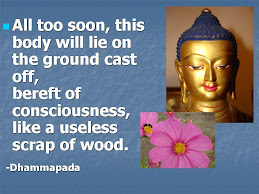







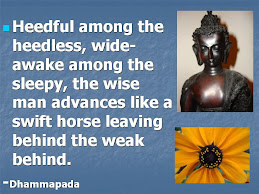

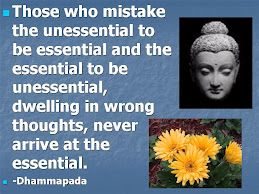

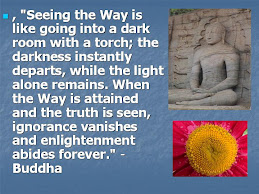

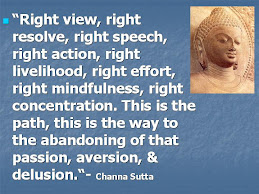



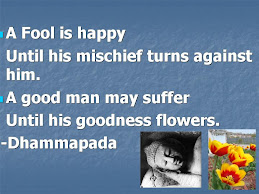
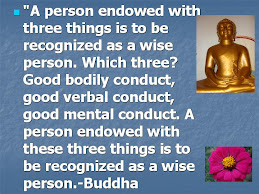
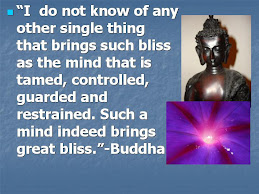
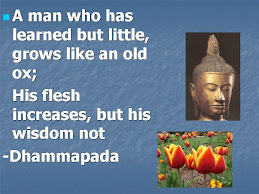
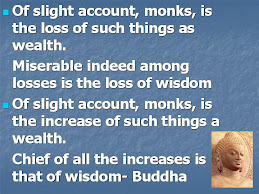


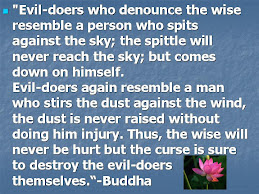

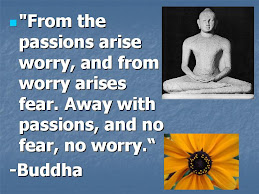
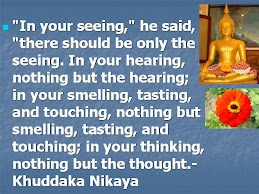


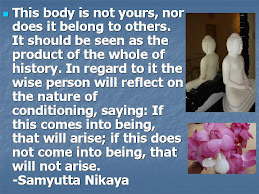
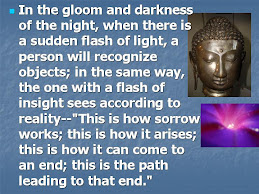



No comments:
Post a Comment